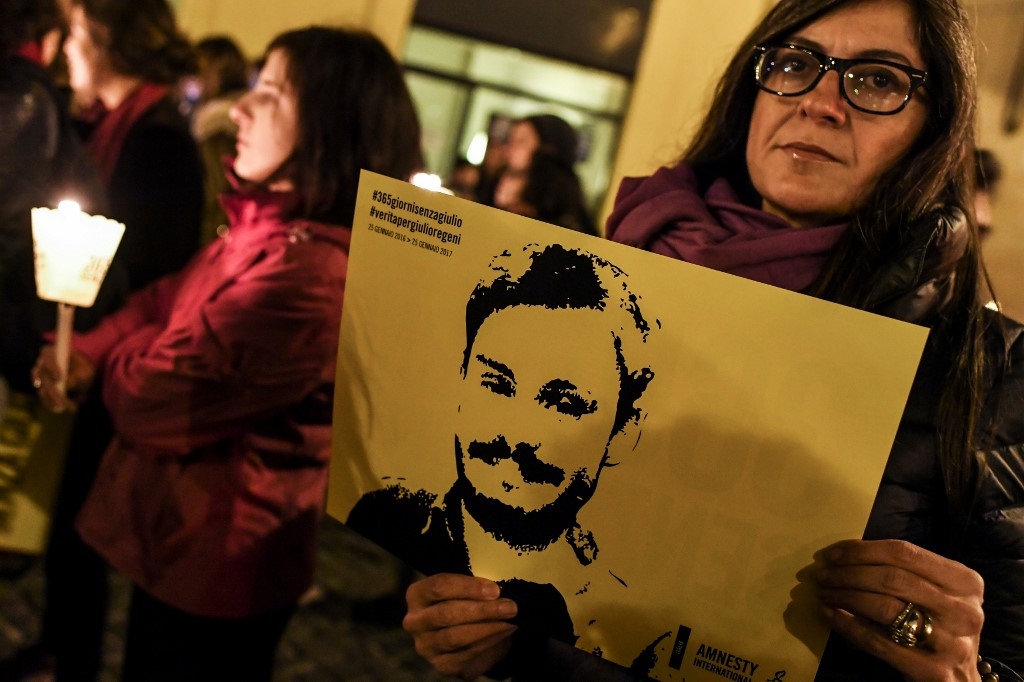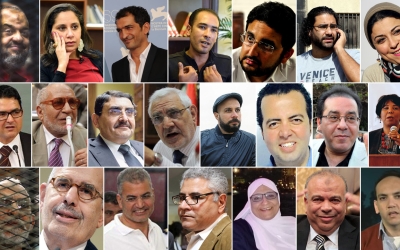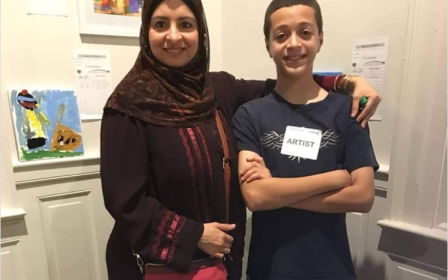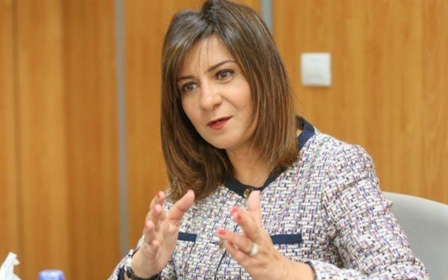Egypt to host UN-backed conference on torture in Arab region

Egypt's government has been accused of being responsible for a "torture epidemic" in the country, but that hasn't stopped the United Nations from organising an international conference on the abuse in Cairo.
Organised by the UN's regional High Commissioner for Human Rights and the Egyptian government's own human rights body, the Conference on Defining and Criminalising Torture in Legislation in the Arab Region is set to be held on 4-5 September in Cairo.
Participants, according to the UN office, will include government representatives from across the Arab world, as well as non-governmental organisations and media professionals.
Independent human rights organisations that have documented the country’s torture practices, however, will be absent.
Human Rights Watch has estimated that around 60,000 political prisoners have been detained since President Abdel Fattah el-Sisi took power in 2013. Many of those have reported torture and other forms of abuse in detention.
New MEE newsletter: Jerusalem Dispatch
Sign up to get the latest insights and analysis on Israel-Palestine, alongside Turkey Unpacked and other MEE newsletters
Mohamed Zaree, a researcher at the Cairo Institute for Human Rights, said the conference would “only contribute to Egypt’s PR efforts to whitewash its image”.
Zaree’s organisation, like most independent human rights organisations in the country, has been banned and its members, including himself, restricted from travel since 2016.
He said his organisation has not been invited to the conference because its members would use the platform to speak out against the Egyptian authorities' abuses, harming the government's image.
Zaree bemoaned the decision to hold the event in Cairo, asking why Romena didn't choose a country where all groups would have a chance to participate.
“It would have made sense to hold the conference in Tunisia, a country with minimum human rights commitments and a democratic path,” he told Middle East Eye.
The conference comes ahead of the UN's Universal Periodic Review in November, a process in which member states declare actions they have taken towards improving their human rights record.
The timing is no coincidence, said Zaree, who suggested that the Egyptian government was looking to boost its image abroad before the review in Geneva.
'It would have made sense to hold the conference in Tunisia, a country with minimum human rights commitments and a democratic path'
- Mohamed Zaree, rights activist
Since Sisi came to power in a military coup, his government has overseen an unprecedented crackdown on civil society organisations, particularly rights groups.
That includes nearly all key civil society groups whose work documents torture or supports its victims.
In addition to the Cairo Institute, the Nadeem Center for the Rehabilitation of Victims of Violence and Torture has been outlawed and its staff banned from travel.
Other attempts to tackle the prevalence of torture have been blocked by authorities.
In 2015, two senior Egyptian judges were referred to a disciplinary board and prosecuted for working with Negad el-Borai, a local human rights lawyer, on a proposed anti-torture bill.
The president of the Appeals Court, Judge Hisham Raouf, and the vice-president of the Court of Cassation, Judge Assem Abdel-Jabbar, were both accused of “engaging in a political activity” and collaborating with “an outlawed organisation” after helping draft a law on the prevention of torture.
The judges remain on trial, with their next hearing set for 20 August.
Human Rights Watch, whose work is currently banned in Egypt, has accused the Sisi government of involvement in “systematic widespread enforced disappearances and torture that most likely amount to crimes against humanity".
Bahey eldin Hassan, the director of the Cairo Institute, said that one of the main reasons behind the repression of local rights groups has been their collaboration with the UN.
He pointed out that last year two UN Special Rapporteurs stated that Egypt was not ready to host visits by UN experts due to the reprisals faced by human rights defenders who interacted with them.
“I am quite shocked that the Office of the High Commissioner is sponsoring such an obvious attempt to whitewash the crimes of the military dictatorship in Egypt,” said Hassan, who has been living in exile for the past five years due to "government-affiliated" death threats in Cairo.
Middle East Eye delivers independent and unrivalled coverage and analysis of the Middle East, North Africa and beyond. To learn more about republishing this content and the associated fees, please fill out this form. More about MEE can be found here.





